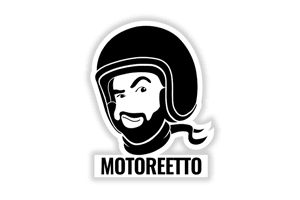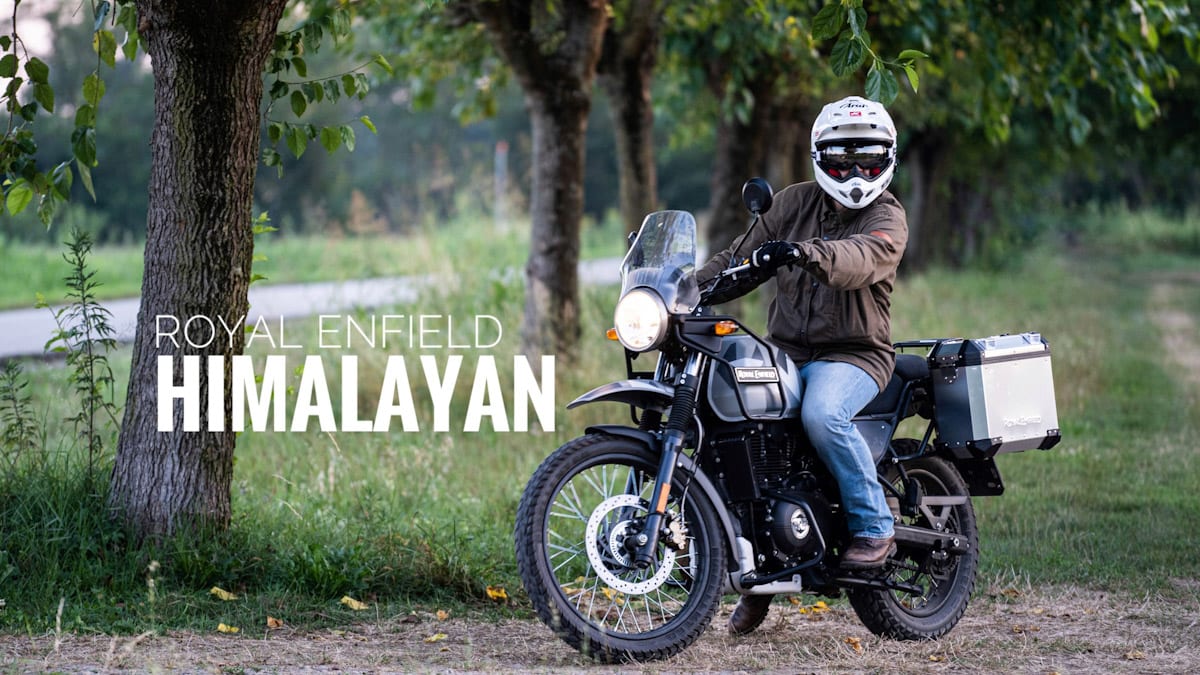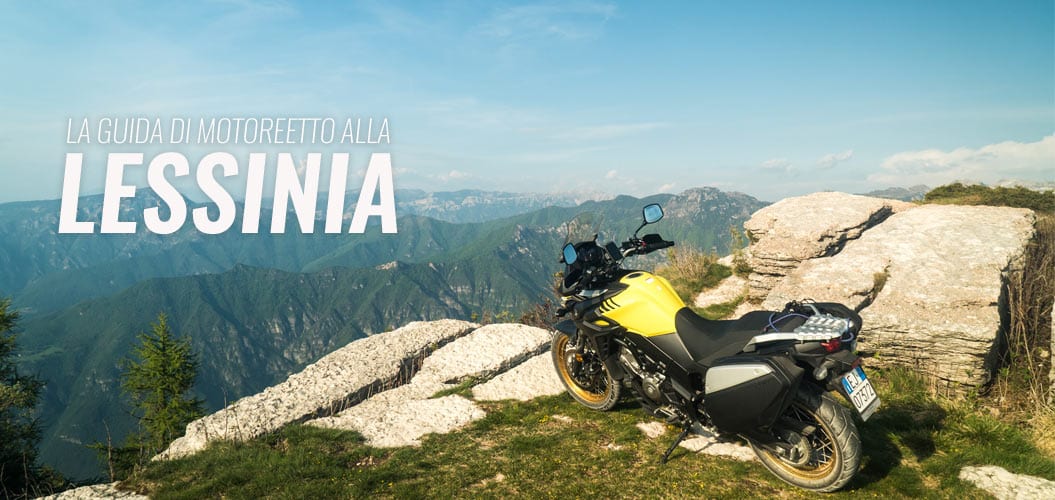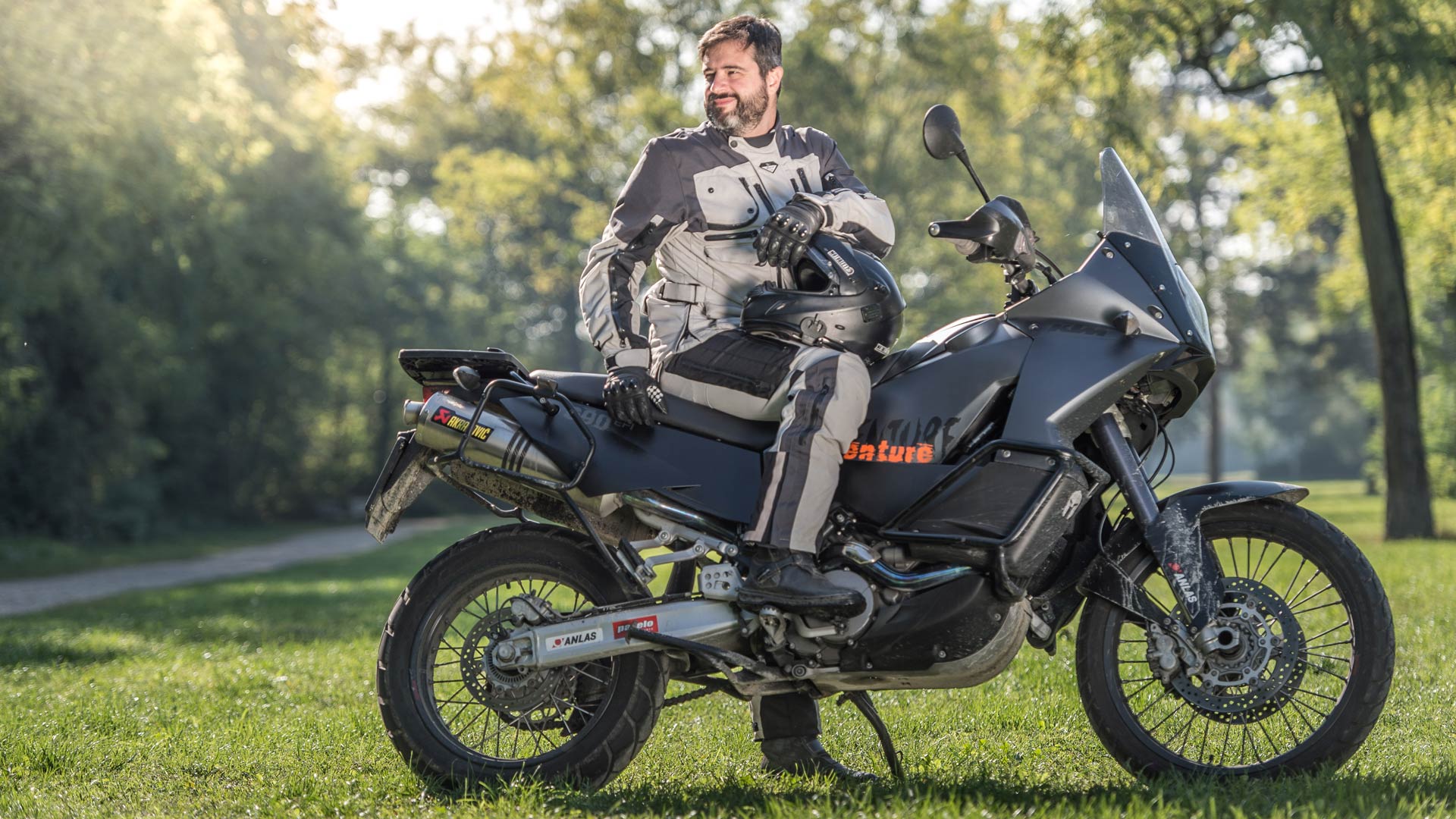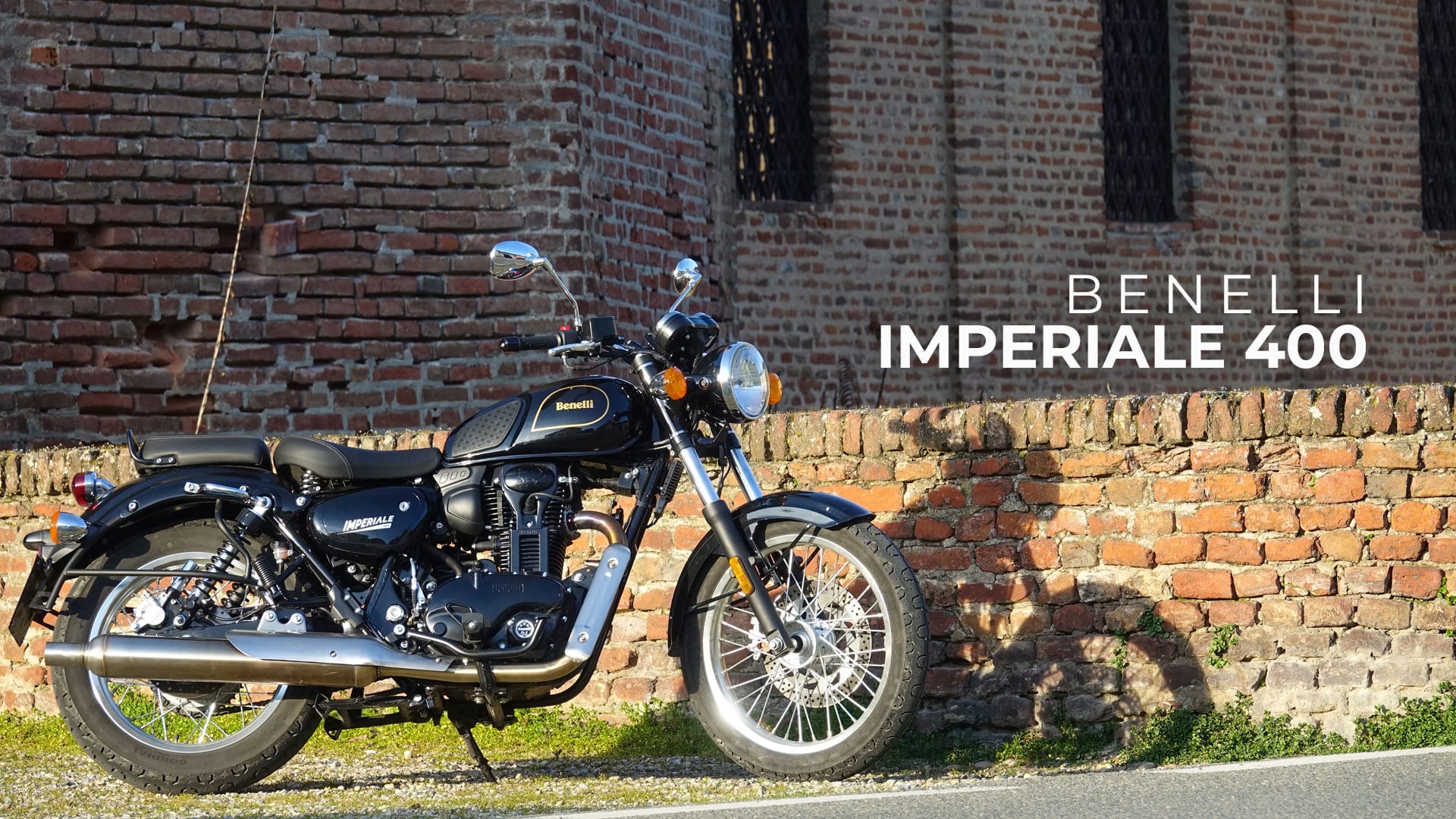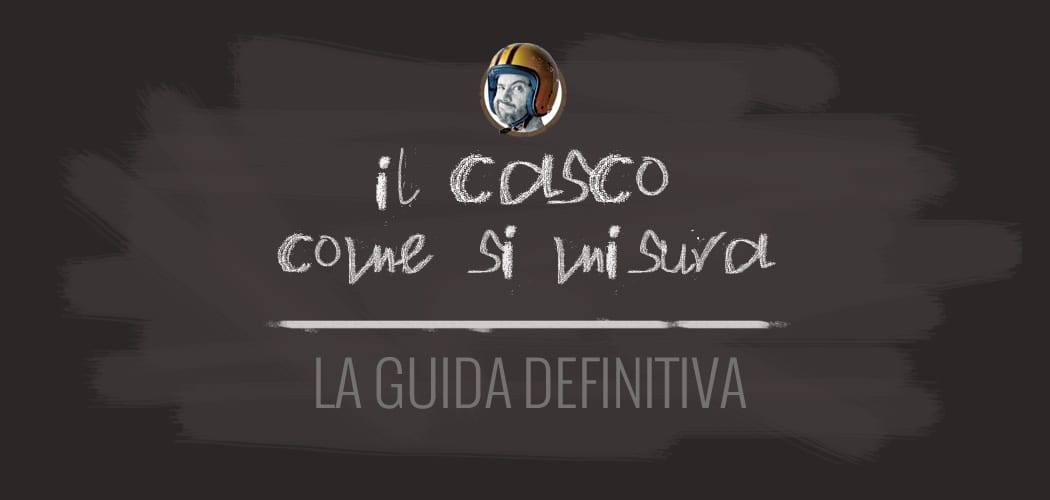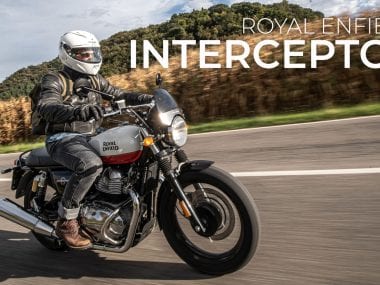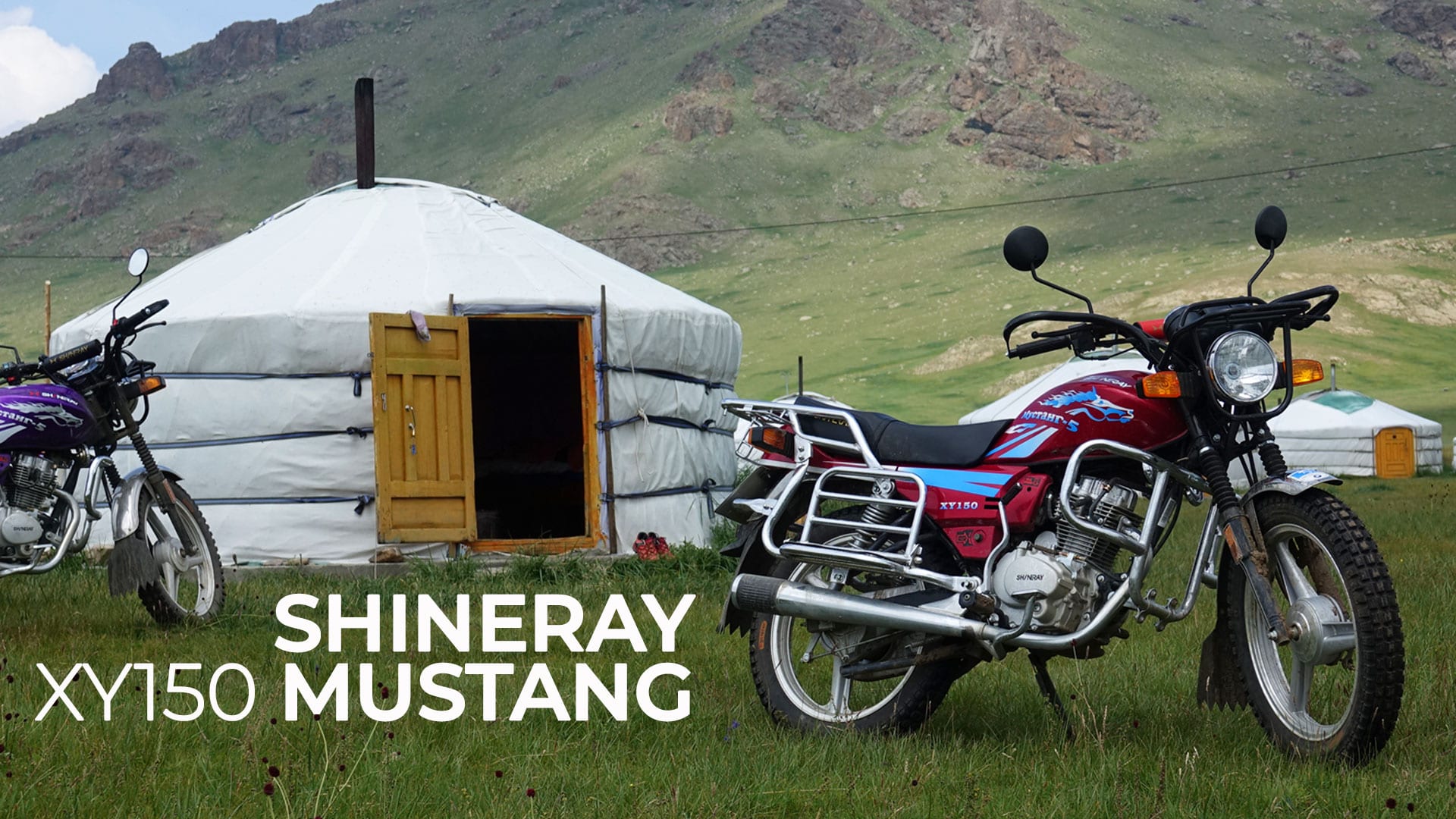When I first saw the Royal Enfield Himalayan at EICMA 2016 I immediately thought that the idea of a “adventure bike for everyone” it was very very interesting and I wanted to try it. Mi sono detto: “it is the bike that I would have liked to have had on the Himalayan climbs when I was in Ladakh!”. But when I've been there in the 2013 the Himalayan was not even a sketch on a sheet of paper.
Over the past three years, many have written to me to ask for my impressions of her, a sign that with its competitive price and its declared ease it has managed to intrigue everyone. We had to wait a while, but finally here is the complete proof, so let's forget the preambles and let's analyze it.
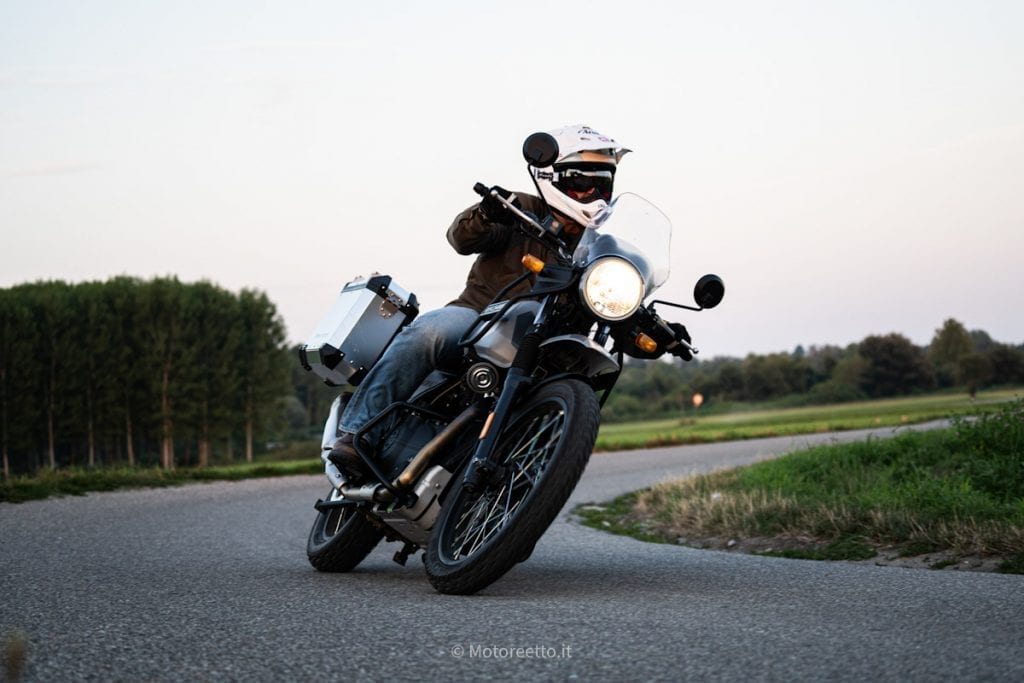
Royal Enfield Himalayan: that motion is?
The Royal Enfield Himalayan debuts during the 2016 and it is a new important chapter for the Indian brand that for the first time designs a motorcycle starting from a blank sheet of paper. In short, the historic Bullet platform is put aside and for the Himalayan everything is done from scratch. For the design, Pierre Terblanche, who directs the operations, is even bothered and the group of Indian designers begins to study in the field how their customers use the bike in their adventures. Their aim is to give a practical answer to their needs.
And when it comes to adventure in India, there is talk of narrow streets in poor condition, important slopes, few petrol stations, long distances. If we usually focus on the Alps, for Indian centaurs, the destination is called the Himalaya.
This is the video I made in 2016 when they presented her at EICMA:
The Royal Enfield Himalayan is therefore a motorcycle designed to travel on any type of terrain, better if bumpy, offering convenience, robustness, practicality and low costs. Starting from the price that here in Italy is 4.950 Euro, a figure that entices all lovers of great travels. Competitive enough to even arouse some suspicion: it will be worth it? It meets our standards?
Long-time travelers know that with a single cylinder 400 you can do a lot of things. In this case it is precisely the engine of the Himalayan but it has aroused the first grumbles: the data sheet barely speaks 25 CV a 6500 giri and a more encouraging pair of 32 Nm a 4250 giri. Figures that sound very low compared to what we are used to hearing in the field of touring motorcycles. They will be enough?
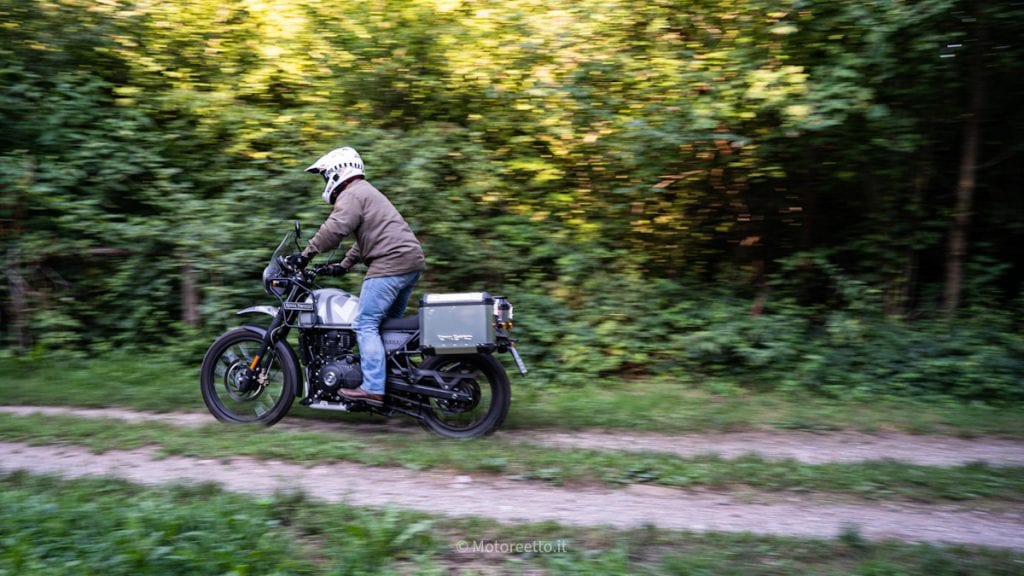
How it is made?
Rustica. Needless to go around: compared to the standards of European and Japanese houses there is still an abyss in terms of quality of materials and assembly. That said, the question to ask is: what I really need when I travel?
Here, not a chapter but an entire book would open (che dici, maybe one day I'll write it?) because the needs can be the most disparate, certo, but the first thing to keep in mind is that I need practicality and the Royal Enfield Himalayan is the self-propelled praise of practicality.
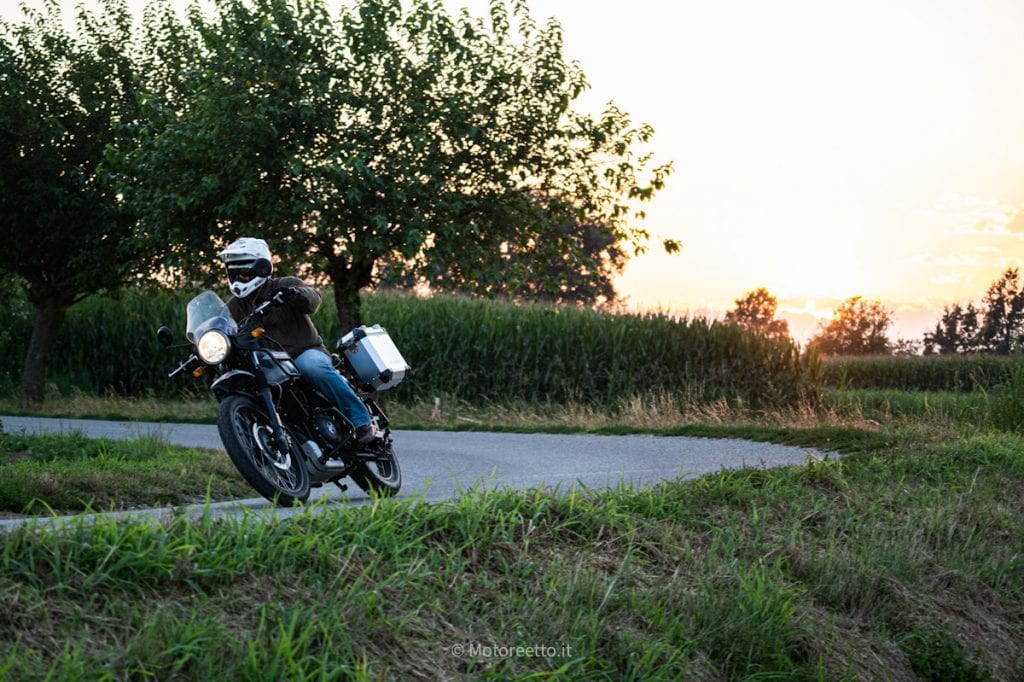
An essential bike like no one has seen for a long time that seems built to the motto “what is not there does not break and what is there must be able to be fixed quickly”. Which is exactly what you need when you are on the rock climbs of Ladakh!
So no electronics (except injection, display and the mandatory ABS) and no adjustments. Here you can download all the technical data on the Himalayan.
This spirit is also popular here, despite our needs are a bit’ diverse. We have a lot more asphalt and the average speeds are much higher. But when we throw the wheels off-road? We are sure we want to have a bison in our hands 1200 cc or at least to always be able to drive it properly? It is not that it is finally too demanding and this makes us enjoy less of the landscape we are crossing?
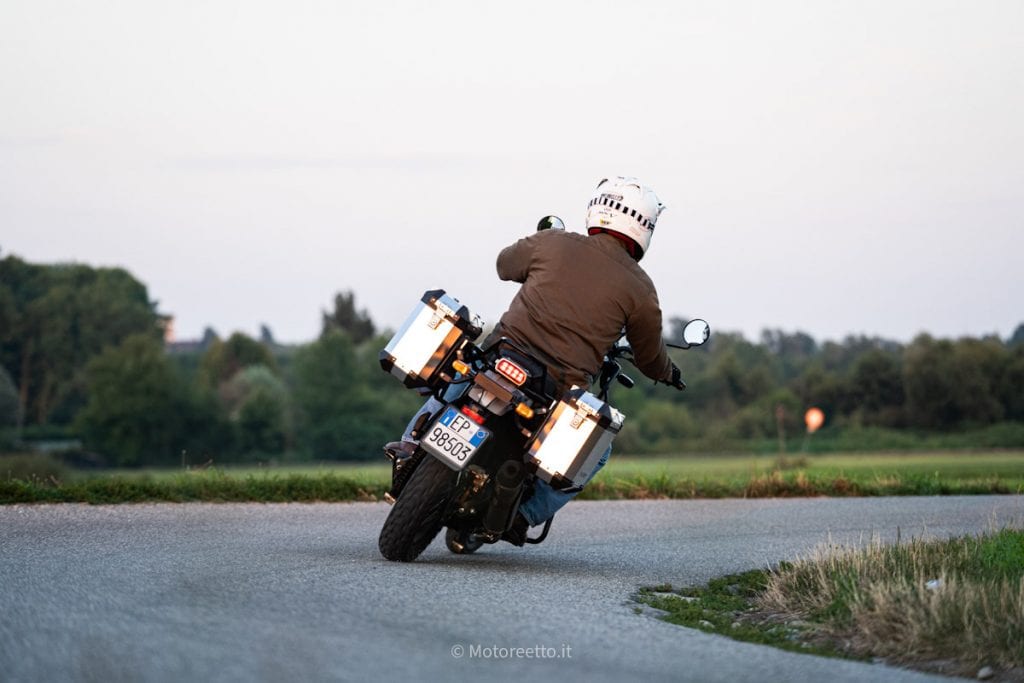
Questions that, I believe, we all ask ourselves from time to time. Here I can say from the outset that with the Himalayan you fear nothing. The sense of freedom is exceptional because you feel that there is no obstacle that will put you in difficulty: you will get everywhere, as long as you want to get there calmly.
How you are riding?
Small and comfortable. Often the bikes with small dimensions, typically those designed in Asia, turn out a little’ uncomfortable for us Europeans. This is not the case with the Himalayan whose footpeg-saddle-handlebar triangulation is well proportioned. Sure the knees are a bit’ leaning when sitting in the saddle and is unavoidable because the ground clearance is reduced to 800 mm, a record for an enduro. When you stand up, you can drive very well. The handlebar is quite high and so narrow it can be squeezed quite well between the legs. Here you can see how the tank is actually extremely narrow while the engine casings are quite wide between the ankles. It is not a real enduro and the focus is not on performance. The overall balance is good.
The saddle is well sized and made. Although the appearance is not the most luxurious, it is better than that of many other more expensive competitors.
As you drive?
As I anticipated, the Royal Enfield Himalayan has the enormous advantage of offering absolute freedom. Asphalt or dirt road you tackle everything with the same naturalness and simplicity. And also with practically the same speed. The gears are not pulled (anyway it is useless) but it never stops either: you can't wait to catch a glimpse of any small dirt detour to take it in search of the unknown. The weight gets a little’ feel only when you have to move or lift the bike, otherwise the good balance and the low seat help a lot and you are never in difficulty, you can really turn it into a handkerchief.
To travel by state highway, he has all the credentials: it's not lightning but it takes those quickly 70-90 km / h you need. Braking, on the other hand, both for incisiveness and for feeling, must be reviewed, with the front brake lever quickly becoming spongy.
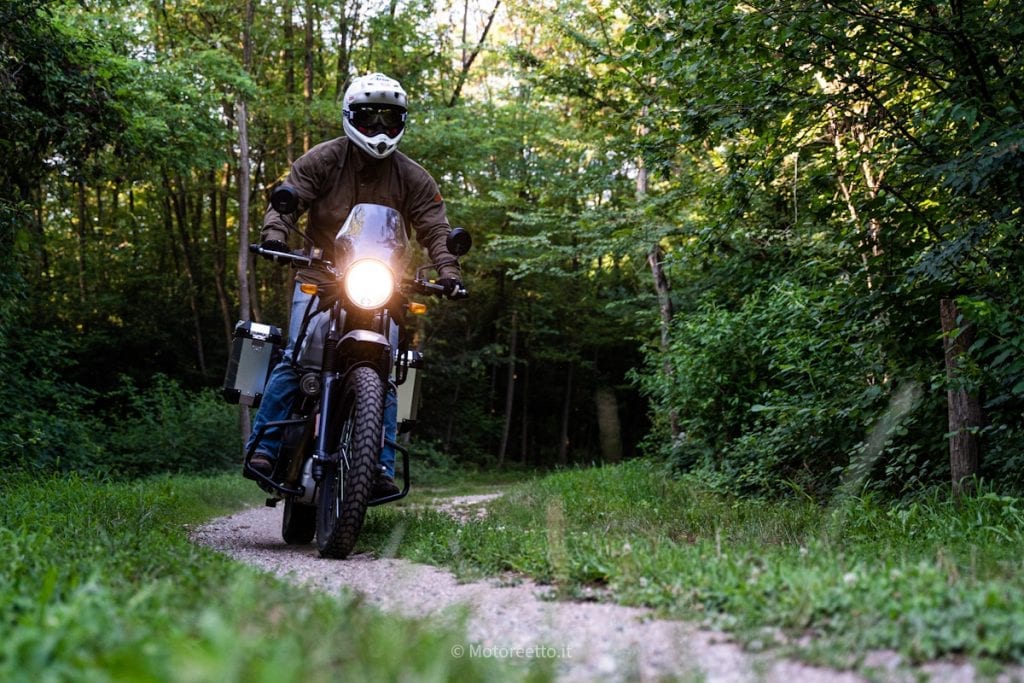
What I like?
I like the concept in general, its ease and practicality, the military look from a small soldier to the great maneuvers.
What I do not like?
I don't like braking: in front it immediately becomes spongy and the power is rather reduced. A po’ the engine is also undersized, not in terms of volume but of power. Probably working on it a bit’ rough, especially on the exhaust, you can get something, but it would really take a few more horses.
To the council
To all those who never take the highway. To all those who obviously want to get up early in the morning, load a bag and leave aimlessly, calmly, to savor the territory inch by inch with a mild adventure companion. In short, to those who never want to stop and don't know what haste is.
FOTO: FILIPPO PANDIN
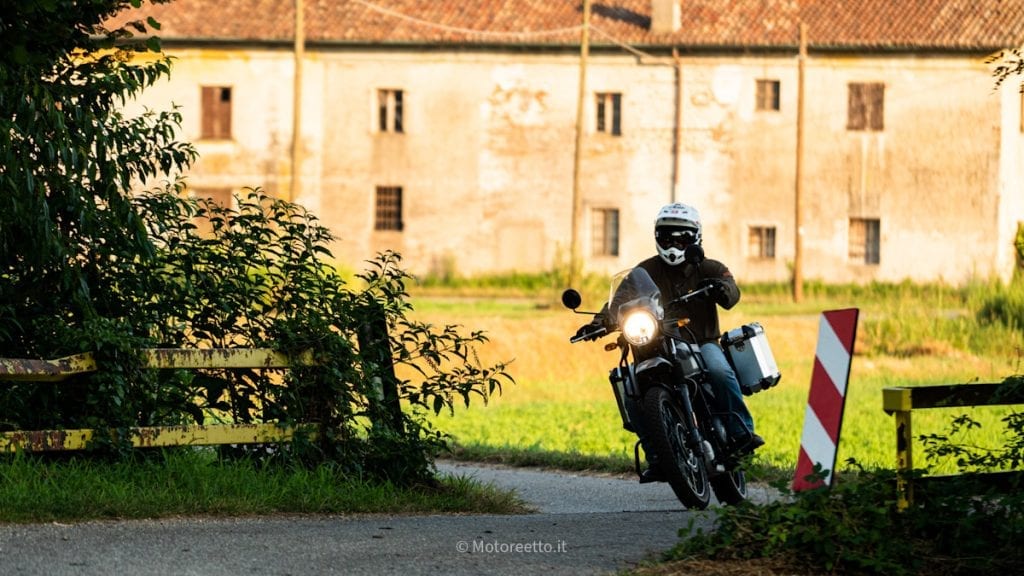
I am convinced that an informed motorcyclist is a more aware motorcyclist and in his own small way he will act for a better world. For this reason, the articles and videos that I publish on Motoreetto.it are accessible to everyone and without advertising banners because the information must be open and shared.
I am doing it independently and it is allowed by the people who have decided to join my CLAN.
It would be fantastic if you also considered being part of it.
